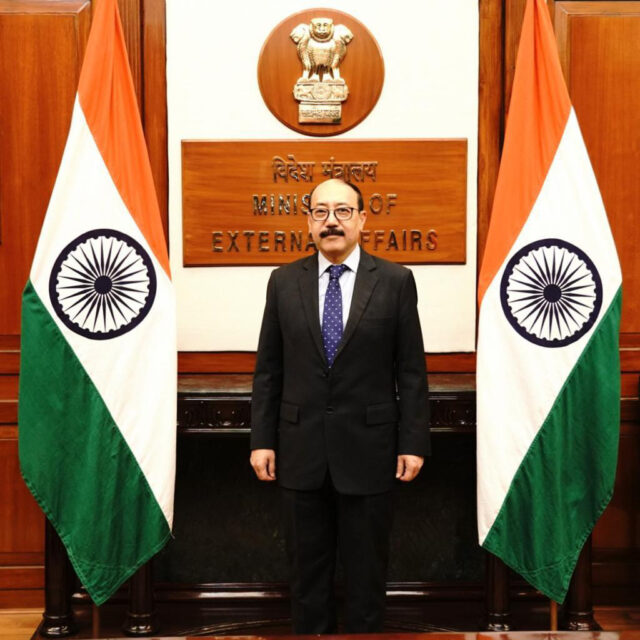NEW DELHI: Recent moves at disengagement may lead to some “semblance of normalcy” in the India-China relationship, foreign secretary Harsh Shringla said at a webinar recently. But as he pointed out, “We have always made the point with our Chinese interlocutors that a normal bilateral relationship is contingent upon peace and tranquility in the border areas. Both sides have accepted this as part of their treaty obligations and as we disengage, there is likely to be some resolution of some of the recent border friction points that we have seen. We have to see whether we can apply similar principles to other areas in the Ladakh sector.”
The standoff in Ladakh has driven home the realization at the highest levels of government on the need to diversify economic linkages away from China. Though the government has banned some Chinese apps and there is greater scrutiny of China investment coming into the country, that country remains India’s top trading partner with two- way trade worth $78 billion heavily skewed in Beijing’s favour.
On ties with the new Biden administration, Shringla said: “We have got a sense of the priorities of the new US administration and there are elements of continuity such as the Indo-Pacific and the Quad. There is both continuity and new issues being introduced such as co-operation on climate change and technology along with joint efforts to tackle the COVID-19 pandemic. We expect more initiatives and interaction at the highest level in the near future.”
Coming to Europe, Shringla said Brexit had been a “gamechanger” as far as India-EU and even the India-UK relationship was concerned, because both were “re-calibrating their economic engagement with India.”
He said India would like to see greater European engagement in the Indo-Pacific. “The India-EU relationship is a special one. We hold similar views on key issues such as Afghanistan, the immediate neighbourhood and the IOR. We are working with the EU to see if we can have a common platform to build up an Indo-Pacific strategy and we would like to see greater European engagement in our region.”
With reference to the neighbourhood, Shringla, who was high commissioner to Bangladesh, stated: “We have had some successes in the last few years. We have comprehensively addressed the land and maritime borders with Bangladesh and today it is a country with which we have the closest of ties. We had successful visits by the External Affairs Minister (Jaishankar) to both the Maldives and Mauritius and we’re now reaching out to friends in the western Indian Ocean. The ‘Neighbourhood First’ policy has been very satisfactory from our point of view.”
Traveller, bibliophile and wordsmith with a yen for international relations. A journalist and budding author of short fiction, life is a daily struggle to uncover the latest breaking story while attempting to be Hemingway in the self-same time. Focussed especially on Europe and West Asia, discussing Brexit, the Iran crisis and all matters related is a passion that endures to this day. Believes firmly that life without the written word is a life best not lived. That’s me, Ashwin Ahmad.





